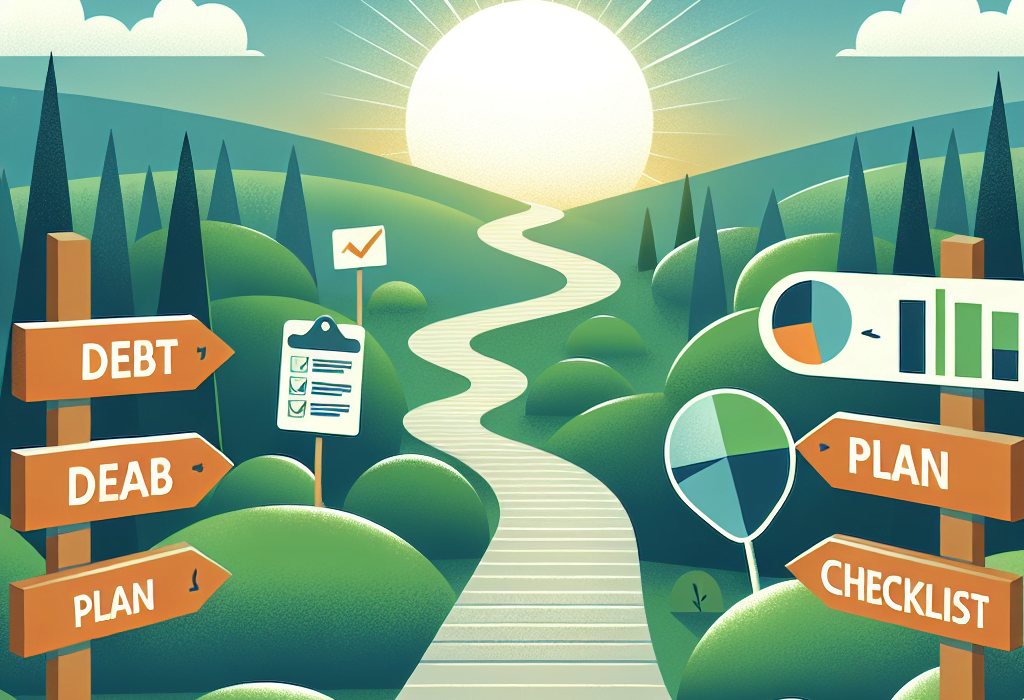Whether it’s student loans, credit card bills or an oppressive mortgage, debt is a serious issue that affects many individuals and families. However, living under the dark cloud of debt is not a life sentence. With the right plan and dedication, you can reduce or eliminate your debt and start living a financially secure life. This article will provide an in-depth look into debt reduction plans, including practical tips and strategies in each section. By the end, you’ll have a comprehensive understanding of where to begin and how to proceed on your path to a debt-free life.
Understanding Debt
First of all, it is crucial to fully understand the nature of your debt. This includes the total amount you owe, who you owe and the interest rates. Understanding your debt is the starting point of developing a debt reduction plan and you should collect all your financial records in a centralized place. Also, calculate your total monthly income and expenses to see how much you can dedicate to debt payments.
Establish a Budget
Creating a budget is a critical part of any debt reduction plan. It will help you to identify areas where you can cut spending and find extra money to pay off your debt faster. Make sure to include all monthly spending, including fixed expenses like mortgage or car payments and variable expenses like food, entertainment, or gas. Once your budget is established, stick to it and monitor your spending regularly.
Debt Payoff Strategies
When it comes to paying off debt, there are several effective strategies. Two of the most popular ones are the snowball method and the avalanche method. The snowball method involves paying off debts with the smallest balances first, while the avalanche method focuses on paying off debts with the highest interest rates first. Both can be effective, it depends on your personal preference and situation.
Create an Emergency Fund
Even with a solid payment plan, life can throw unforeseen expenses your way. Having an emergency fund can help you avoid adding new debt. An emergency fund is money saved for unforeseen circumstances. Your goal should be to save enough to cover three to six months’ worth of living expenses eventually.
Consider Professional Help
If your debts are significant and you’re struggling to make progress, it may be beneficial to seek out professional help. Credit counseling agencies can provide advice and may be able to negotiate lower interest rates or payments with your creditors. Debt settlement companies or a debt consolidation loan could also be an option.
Change Your Habits
To be successful in your debt reduction plan, it’s important to change your spending habits. This may involve avoiding credit card use, reducing discretionary spending, or prioritizing saving. Remember, it’s about making long-term changes for your financial health.
Conclusion
Debt reduction might seem daunting, but with clarity, planning, and determination, it’s an achievable goal. By understanding your debt, establishing a budget, choosing the right debt payoff strategy, creating an emergency fund, seeking professional help when needed, and changing your spending habits, you are on your way to a debt-free life. Remember that every small step counts, and consistency is key.
Frequently Asked Questions
1. What is the difference between debt consolidation and debt settlement?
Debt consolidation involves taking out a new loan to pay off your existing debts, giving you one monthly payment instead of many. Debt settlement, on the other hand, involves negotiating with your creditors to pay less than you owe.
2. Is it better to pay off debt or save money?
Rather than opting for one over the other, a balanced approach generally works best. Always make at least the minimum required payment on your debts to avoid penalty fees and credit score damage. After that, think about allocating a part of your income towards savings while paying off debt with the rest.
3. How long can a debt reduction plan take?
How long it takes to become debt-free will depend on your total debt, your income, and your spending habits. For some people, it could take a few years, for others, it could take decades.
4. Can debt reduction affect my credit score?
While certain methods like debt settlement can negatively impact your credit score, other methods like paying off your debt on time can actually improve it.
5. What if I cannot stick to my budget?
A budget is a living document and you can adjust it as needed. If you’re consistently unable to stick to your budget, it may be too strict. Review it to ensure it reflects your income, expenses, and financial goals.













